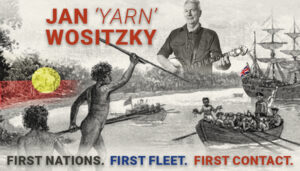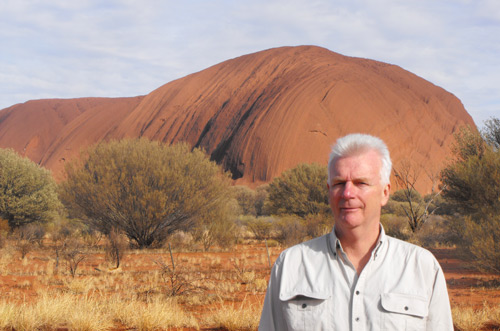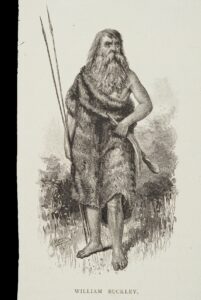Music, Visual Art, Storytelling Show Year 4 (First Contact), 5, 6 Secondary Australian Studies/History
“The students still talk about the poems, stories that you shared with us, on how the British explorers were received by the Indigenous Australians. It was fantastic to hear the two perspectives through your musical talent. The use of paintings/ visuals aided the students learning by connecting the stories that you told.” (Madeleine Paslis, Toorak PS)

Brief
A music and story show, with archival images, about first contact and developing relationships between Indigenous Australians and the British colonists, from Captain Cook onwards, including:
* Indigenous songs before colonisation (with permission).
* Captain Cook shooting at Aboriginal people at Botany Bay/Kamay, and his makaratta – peace after a dispute – with the Yimithir people at Reconciliation Rocks, Cooktown (we have the word kangaroo’ from the Yimithir word Gangarruu).
* Convict songs – a pop song from the day (Botany Bay) and a genuine convict song (Jim Jones), about how they came here because of thieving (with background re gaols in England etc)
* Events of early Sydney: Indigenous and soldiers dancing together; small pox epidemic, war with Pemulwuy, Gov. Phillip speared.
* How Victoria was different: first failed settlement, and how escaped convict William Buckley was welcomed by Wathaurong people as a spirit (Ngamadjidj) come back from the dead; how land speculator John Batman tried to buy land surrounding Port Phillip Bay.
* Jan’s personal story of his ‘first contact’ with Aboriginal people, as a boy in Gippsland.
* The 1984/6 story of the last Indigenous people to make contact with white Australians (Pintupi and Martu people in the NT and WA).
* A song to finish, Thank You for the Welcome, which sums it up in the context of continuing peace between black and white Australians.
Practical Details
Cost $5 per student. $500 minimum per show. Plus travel in some locations.
Duration 60 minuets plus questions
Set up time 60 minutes

 Wominjeka: The Thank You Workshop – Jan ‘Yarn’ Wositzky at Uluru
Wominjeka: The Thank You Workshop – Jan ‘Yarn’ Wositzky at Uluru